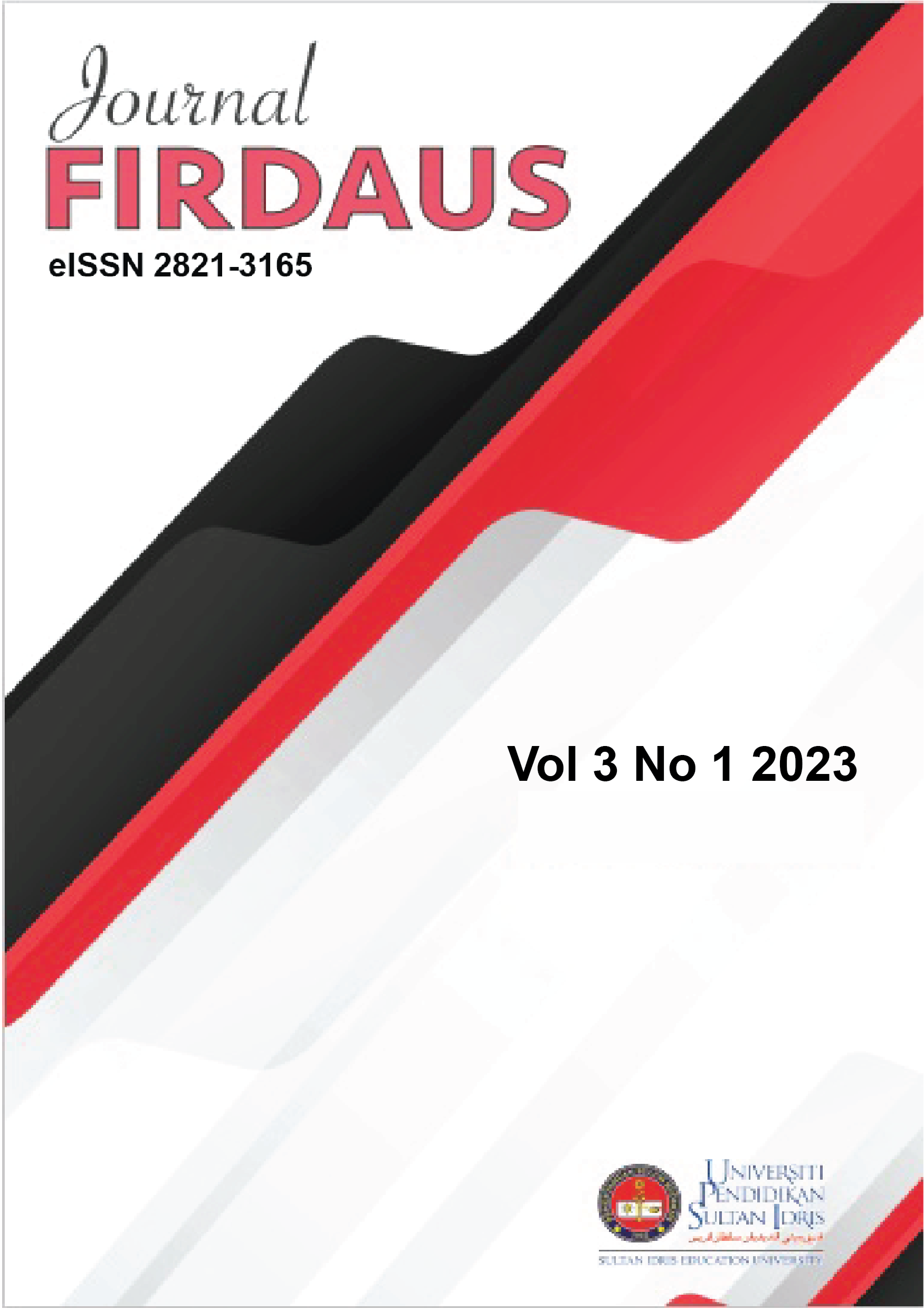Islamic banking product and services for socio-economic enhancement: Evidences from Nigeria
DOI:
https://doi.org/10.37134/firdaus.vol3.1.7.2023Keywords:
Islamic banking, Socioeconomic, Ease of doing business, Foreign Direct InvestmentAbstract
The use of debt financing strategy by the Nigeria government to promote socioeconomic development has rather impacted negatively on the growth potentials of the economy and deepen the country debt in the global community. The survey research design was used in this study. With a sample size of 636 populace, the study used a convenient sampling technique. The Socioeconomic Impact of Islamic Banking Products Survey (SIBP) with high reliability coefficient and descriptive statistics were employed. The findings shows that Islamic banking and services promotes socio-economic development, engendered the growth of SMEs, enhance foreign direct investment (FDI) inflow and create friendly business environment by improving the ease of doing business through access to financial resources. Based on the study, Islamic banking product and services are catalyst that promotes social welfare and reduce poverty rate thereby engendering socio-economic development in Nigeria.
Downloads
References
Abdurahman, Z. & Shittu H. (2016) “Islamic Banking and its Implications on Human Capital Development in Nigeria” Journal of Islamic Banking and Finance, Karachi, Vol.33 (3)
Abubakar, A., Garba, A., & Suleiman, S. A. (2020) “Non-Interest Banking Products and Financial Performance of Jaiz Bank Plc, Nigeria” FUDMA Journal of Management Sciences, Vol. 2 (2)
Abubakar, S. G., & Adiyyah, B. A. (2018). Impact of Islamic Banking on Socio-economic development amongMuslim Community: A Study at Jaiz Bank in Sokoto Nigeria. International Journal of Research Publications, 3(1). http://ijrp.org/paper_detail/109
Alaro, A. A. (2021), ‘Islamic Financial Services: The Interplay of Religion, Law and Corporate Social Responsibility” The One Hundred and Ninety-Sixth (196th) Inaugural Lecture, Ilorin, University of Ilorin.
BT Shahar, W. S. et. al, (2017) “The Historical Development of Islamic Banking” Proceeding of the 4th International Conference on Management and Muamalah
Doraisami, B., Shanmugam, A., & Raman, R. (2011) “A Study on Consumers’ Preferences of Islamic Banking Products and Services in Sungai Petani” Academic Research International, Vol.1 (3)
Fatai, B. O. (2012) Can Islamic Banking Work in Nigeria?” Journal of Sustainable Development in Africa, Vol. 14 (2)
Haneef, M. A. (1997) Islam, “The Islamic Worldview and Islam Economics” IIUM Journal of Economics & Management” Vol. 5 (1)
Mawoli, M. A. & Abdulsalam, D. (2012) “Effective Market Segmentation and Viability of Islamic Banking in Nigeria” Australian Journal of Business and Management Research, Vol. 1 (10)
Minhas, I. H. (2020) “Shari’ah Compliant Model of Islamic Banking” Journal of Islamic Banking and Finance, Karachi, Vol. 37 (3)
Oladimeji, M. A., Aziz, M. R. &Khairi, K. F. (2013) “Regulatory and Prudential Supervision Framework of Islamic Banking System in Nigeria: Lesson from Malaysia Experience” Proceeding of the 2nd Applied International Conference. 7-8 December, 2013
Oloso, K. K. (2010) “Western Interest-Based Banks Versus Islamic Banking: Which Way Out of Nigeria’s Economic Woes?” Springboard Journal of Al-Hikmah University, Ilorin, Vol. 2 (1)
Rustam, S. et. al, (2011) “Perceptions of Corporate Customers Towards Islamic Banking Products and Services in Pakistan” The Romania Economic Journal, Year XIV (4)
Shah, M. A., Rashid, A. & Khaleequzzaman, M. (2017) “Capital Structure Decisions in Islamic Banking: Empirical Evidence from Pakistan” Journal of Islamic Banking and Finance, Karachi, Vol. 34 (2)
Shaikh, S. A. (2014) “Analysis of Challenges and Opportunities in Islamic Banking” Journal of Islamic Banking and Finance, Karachi, Vol 31, (3)
Shaykh, M. A. (2018) “Deposit Taking by Islamic Banks” Journal of Islamic Banking and Finance, Karachi, Vol. 35 (4)
Wajdi, D. A. & Irwan, A. N. (2007) “Why do Malaysian Customers Patronise Islamic Banks?” International Journal of Bank Marketing, Vol. 25 (3). https://doi.org/10.1108/02652320710739850
Warninda, T. D. (2013) “Dynamic Model of Islamic Bank Profitability” Journal of Islamic Banking and Finance, Karachi, Vol. 30 (2)
Yahaya, S., Abdul Hamid, I., & Idris, A. F. (2016) “Adoption of Islamic Banking Products and Services in Nigeria: An Application of Diffusion of Innovation Theory”
Downloads
Published
How to Cite
Issue
Section
License
Copyright (c) 2023 Isa Olasiji Layeni, Nurudeen Babatunde Bamiro, Saheed Afolabi Ashafa

This work is licensed under a Creative Commons Attribution-NonCommercial-ShareAlike 4.0 International License.





